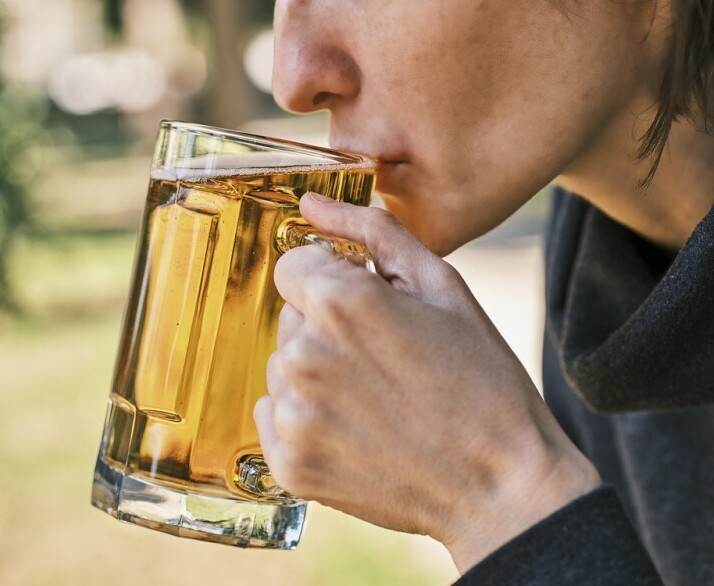
I’m going to open the curtain on the relationship between the consumption of that glass of wine or pint of beer and your waistline. This isn’t just about calories; it’s also about the direct effects that alcohol has on your body’s metabolism and fat storage, particularly around the belly.
You might have heard of the infamous ‘beer belly,’ and I’m here to tell you that it’s not just a catchy phrase. There’s actual science showing that excessive alcohol consumption can lead to increased belly fat. I’ll explain how the body typically processes alcohol and why it might prefer to store those extra pounds around your midsection.
If you’re comparing a can of beer to, say, an apple, it might not seem too bad. But let’s put things into perspective: regular alcohol consumption can add significant calories to your diet, often without you even realizing it. It’s not just the alcohol itself; it’s also what comes with it – mixers, snacks, and possibly even more food as your inhibitions lower.
Beyond calories, alcohol has a knack for disrupting normal metabolism. After a night out drinking, your body is more focused on breaking down alcohol rather than burning fat, which can mean more of those calories end up as stored belly fat. Understanding these metabolic quirks is crucial in tackling the issue of weight management in relation to alcohol use.
Alcohol’s Effect on Fat Distribution in the Body
When you pour yourself a drink, it’s not just the immediate effects you need to think about. Alcohol has sneaky ways of altering how your body stores and distributes fat. Here’s a look at the underlying biological processes that take place once alcohol enters your system.
Firstly, I want you to understand that hormones play a big part in where fat is stored. Alcohol can manipulate hormones like cortisol and estrogen, and this disruption in balance is often what leads to that stubborn belly fat. It’s as if alcohol has a direct line to your midsection, telling your body, ‘Hey, store the fat right here!’

Research doesn’t just suggest; it confirms that regular heavy drinking is linked to an increase in abdominal fat. It’s a significant finding because this fat isn’t just about vanity. But don’t confuse all belly fat with the more dangerous kind, visceral fat, which camps out around your organs and can up your risk for serious health conditions.
Of course, it’s essential to note we’re all unique, and our bodies don’t all respond to alcohol in the same way. Genetics, gender, and lifestyle factors can cause variations in how alcohol affects fat distribution. That’s why I’m diving — metaphorically speaking — into the details about subcutaneous and visceral belly fat, so you know exactly what’s at stake.
The Compound Impact of Alcohol on Lifestyle Factors
If you’re scratching your head about why your belly fat isn’t budging even with regular workouts, take a closer look at your bar tab. Alcohol can act as a domino, knocking over several aspects of your lifestyle that contribute to weight gain. Addressing this can be a game-changer.
First up, let’s chat about how alcohol tends to load the dice against you during mealtimes. It’s notorious for loosening inhibitions, which often means the extra slice of pizza seems much more appealing. Alcohol can stimulate your appetite, leading to an increased intake of calories that, you guessed it, can end up stored as fat right around your midsection.
Now, consider your precious sleep time. Quality sleep is essential for regulating hormones that control appetite and fullness. A nightcap might feel relaxing, but alcohol is actually pretty disruptive to your sleep cycle. This disruption can create a hormonal imbalance, making you more likely to reach for comfort foods the next day.
Fitness plans can take a hit, too. Even moderate drinking can sap your energy the following day, meaning you might skip the gym or go easy during a workout. Less physical activity translates to fewer calories burned, which can hinder your battle against belly fat.

Lastly, let’s not overlook the mental aspect. Alcohol’s depressive properties can affect your mood and resolve, potentially leading to a less active, healthy lifestyle over time. Frequent drinking can chip away at the mental strength needed to maintain good dietary habits and consistent exercise.
So, as we transition into discussing strategies for prevention and reduction of alcohol-related belly tenants, remember that the choices you make at happy hour can resonate well beyond the bars themselves. It’s about more than just the drinks – it’s about how they reshape your daily life.
Preventing and Reducing Alcohol-Related Belly Fat
Making smarter choices that can lead to a healthier you is of paramount importance in this stance. The way you eat and move has a huge role in managing belly fat. Incorporate a balanced diet rich in vegetables, lean proteins, and whole grains. Regular physical activity, especially exercises like HIIT or strength training, can torch calories and trim your waistline.
If you’re looking to target belly fat, consider activities like planking or yoga that focus on the core. Also, hydration is key – sometimes, what feels like hunger is actually thirst. And don’t forget to get plenty of sleep; it keeps hunger hormones in check and helps prevent overeating.
For some people, the relationship with alcohol might be challenging. If that’s you, know that it’s okay to reach out for help. There are professionals who specialize in both nutrition and addiction support, and they can offer personalized advice and strategies.
You can always adjust your approach down the road, but starting with the intention of reducing alcohol-related belly fat is a positive step toward overall health.
The Broader Implications of Alcohol and Obesity on Health
I’m going to wrap things up by connecting the dots between alcohol usage, belly fat, and overall health. Here’s the bottom line: indulging in too much alcohol can lead to an increase in belly fat, and that’s just part of a larger picture.
You’re going to find out about how that extra weight around the middle isn’t just unsightly—it’s potentially harmful. Belly fat, especially when it’s of the visceral kind, is linked to serious health risks, such as heart disease, Type 2 diabetes, and even certain cancers.
Now, if you’re someone who enjoys a drink now and then, it’s important to realize the cumulative effect that alcohol can have over time. Consistently heavy drinking can alter your body’s fat distribution, metabolism, and ultimately, your health.
Always insist on moderation in everything you do. Too much of anything is not good for your system, it’s all about balance and self discipling. Remember, if you struggle to maintain that balance, it’s crucial to seek help.
Choose a path that resonates with you. Whether that’s reaching out to a healthcare provider, joining a support group, or diving into fitness and nutrition, taking steps toward a healthier lifestyle will pay dividends.
In my opinion, being informed about how your choices affect your health is empowering. So, take this knowledge and use it to make decisions that support your wellbeing. And always remember, your first step towards a healthier life doesn’t need to be a giant leap—it just needs to be in the right direction.
Please do not hesitate to drop some comments, questions, and your prior experiences if possible in the comment section. I will really like to read from you. Till I come your way again on my next post. Stay healthy and fit. Shalom.

Oh wow, this hit straight home as I am struggling with fat accumulating around my waistline, although I am not overweight. But I love my wine, and have a few glasses every night, which I can see is most probably the biggest culprit to the unwanted inches around my waist.
It is interesting to see how your body will try to break down the alcohol, rather than the belly fat. So this is something that I will definitely consider next time I pour a glass of wine.
Hi,
It’s great that you’re thinking about how your habits might be affecting your health! Wine can indeed contribute to the accumulation of belly fat, especially if consumed regularly and in larger quantities. Moderation is key, and being mindful of how alcohol affects your body can make a significant difference. Maybe consider cutting back a bit or finding healthier alternatives to enjoy in moderation. Your waistline might thank you for it!